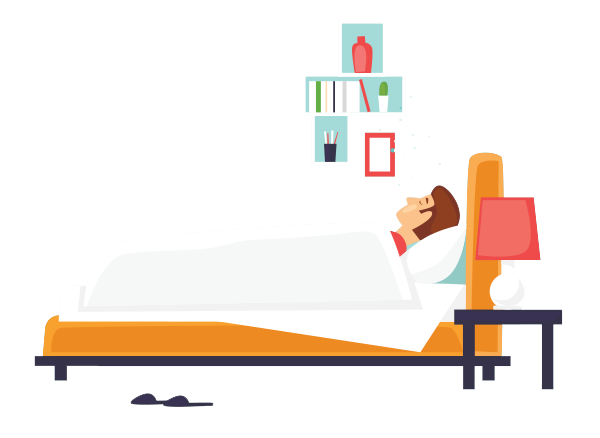Why Effective Sleep Apnea Treatment Is Important
Sleep apnea is a disorder characterized by intermittent stopping and restarting of breathing patterns during sleep. This cycle deprives you of both oxygen and a good night’s sleep, because your body will force you awake throughout the night so you can breathe.
Sleep apnea can have seriously negative repercussions on every aspect of your life, which is why effective treatment is a necessity. If you think you’re experiencing sleep apnea, keep reading our helpful guide to learn how sleep dentist Dr. Sheila Birth can help.

We Treat Sleep Apnea and Snoring
A lot of people think sleep apnea and snoring are two sides of the same coin. This is a common misunderstanding. Snoring is simply a sound that’s caused by the vibration of the tissue that occurs as a patient breathes during sleep. Although heavy snoring is a major symptom of sleep apnea, one doesn’t necessarily lead to the other.
While heavy snoring isn’t always a sign of sleep apnea it can still negatively affect your quality of life. Heavy snoring can disrupt the sleep of your bedpartners or other members of your household, forcing them to endure sleep deprivation and increasing the chances of separation and divorce. Whether your heavy snoring is a sign of sleep apnea or not, sleep dentist Dr. Birth will make sure you get the correct diagnosis and appropriate treatment.

Alternatives to CPAP
CPAP is a very effective treatment for severe cases of sleep apnea, however most patients stop using CPAP after less than a year. While a CPAP machine delivers a steady stream of air into the patient’s airway in order to maintain a constant airflow, common complaints are that CPAP is bulky, uncomfortable, and difficult to use.
In contrast, oral appliances are similar to a retainer and can be taken anywhere. They are custom-made, small, portable, easy to use, and comfortable. For patients with mild to moderate sleep apnea, doctors and sleep dentists often prescribe an oral appliance.



The Risks of Ignoring Your Sleep Apnea
Unfortunately, sleep apnea doesn’t disappear on its own. When left untreated, the consequences of sleep apnea can be devastating to your overall health and relationships. Sleep apnea affects your ability to complete basic tasks. In fact, fatigued sleep apnea sufferers are responsible for thousands of traffic fatalities annually.
Additionally, this common sleep disorder is linked to depression, anxiety, obesity, and several other damaging medical conditions such as chronic pain, type 2 diabetes, heart attacks, and stroke. In children, sleep apnea causes daytime drowsiness as well as behavioral and academic problems at school.

Dr. Birth Can Help Alleviate Sleep Apnea & Improve Your Life
A good night’s sleep is essential to your health and wellness. Regardless of the kind of sleep apnea you may be experiencing or your particular symptoms, Fort Worth sleep dentist, Dr. Sheila Birth can help. Dr. Birth continues to further her education and make use of the latest technology available to help alleviate your symptoms so you can enjoy the benefits of a good night’s rest. Your sleep dentist proudly offers her services to patients from Fort Worth and surrounding areas such as Dallas, Arlington, and Garland, TX.
Don’t let fatigue and tiredness brought on by sleep apnea impact your quality of life or longevity. Contact Birth & Fletcher Orthodontics at our Fort Worth office by dialing 817-502-9103 and schedule an appointment with Dr. Birth. You can also fill out the contact form at the bottom of the page and one of our friendly staff will return your message shortly.
Frequently Asked Questions
Is there a cure for sleep apnea?
In addition to treating sleep apnea with an oral appliance, Dr. Birth will also recommend certain lifestyle changes to ensure the treatment is effective. A well-rounded approach may improve your chances of a successful treatment.
What are the warning signs or symptoms of sleep apnea?
- Loud snoring
- Sleepiness or lack of energy during the day
- Morning headaches
- Forgetfulness and mood swings
- Decreased libido
- Drowsiness while driving
- Restless sleep
- Waking with a choking/gasping sensation
- Waking with a dry/sore throat
The best way to find out if you have sleep apnea is by undergoing a sleep study. A sleep study can be performed under the supervision of a physician in a lab, or in the privacy of your own home. It will record data such as oxygen levels, brain activity, and muscle movement and a physician will determine if, in fact, you have sleep apnea. Then we can start treatment right away.
